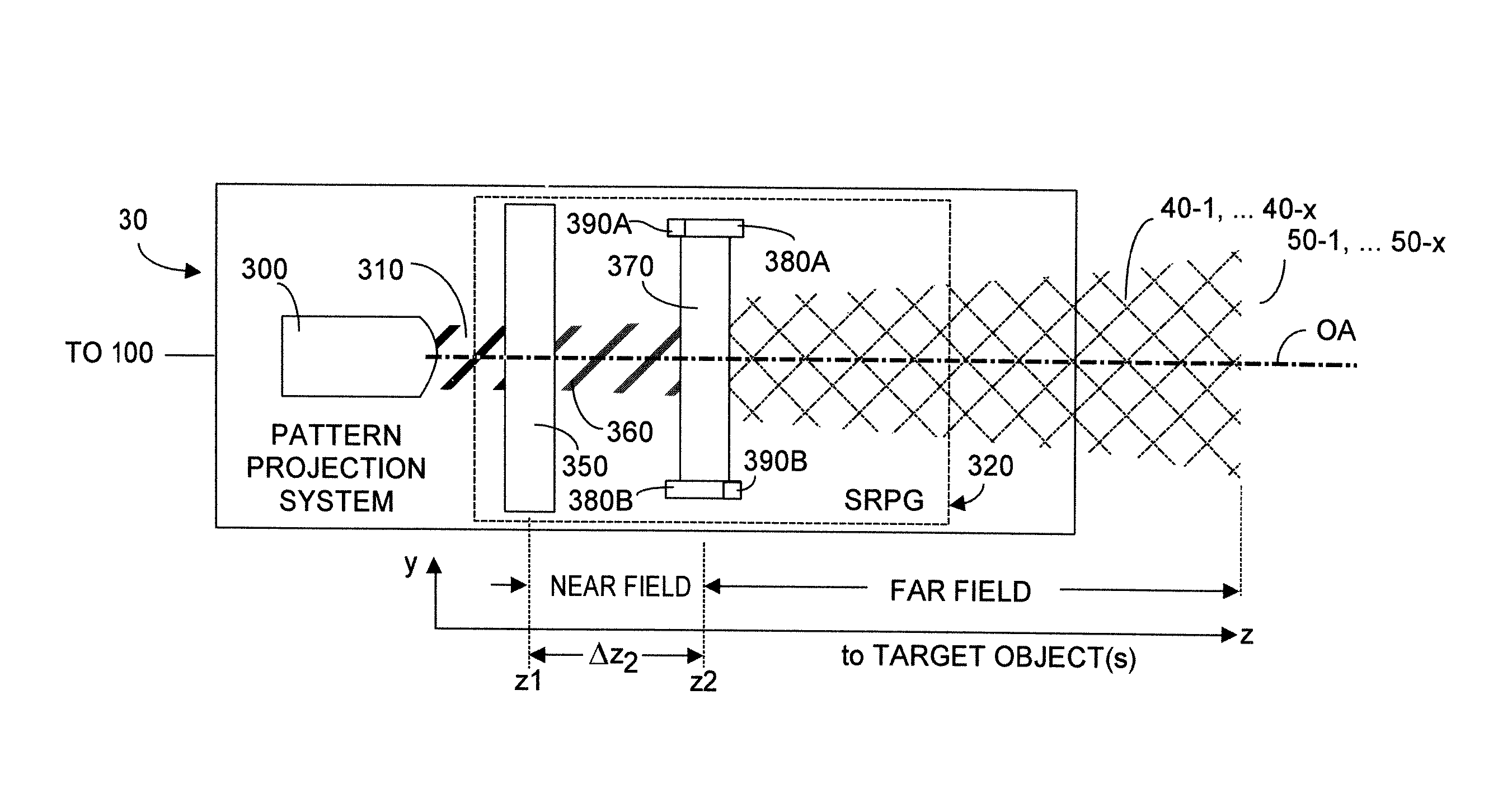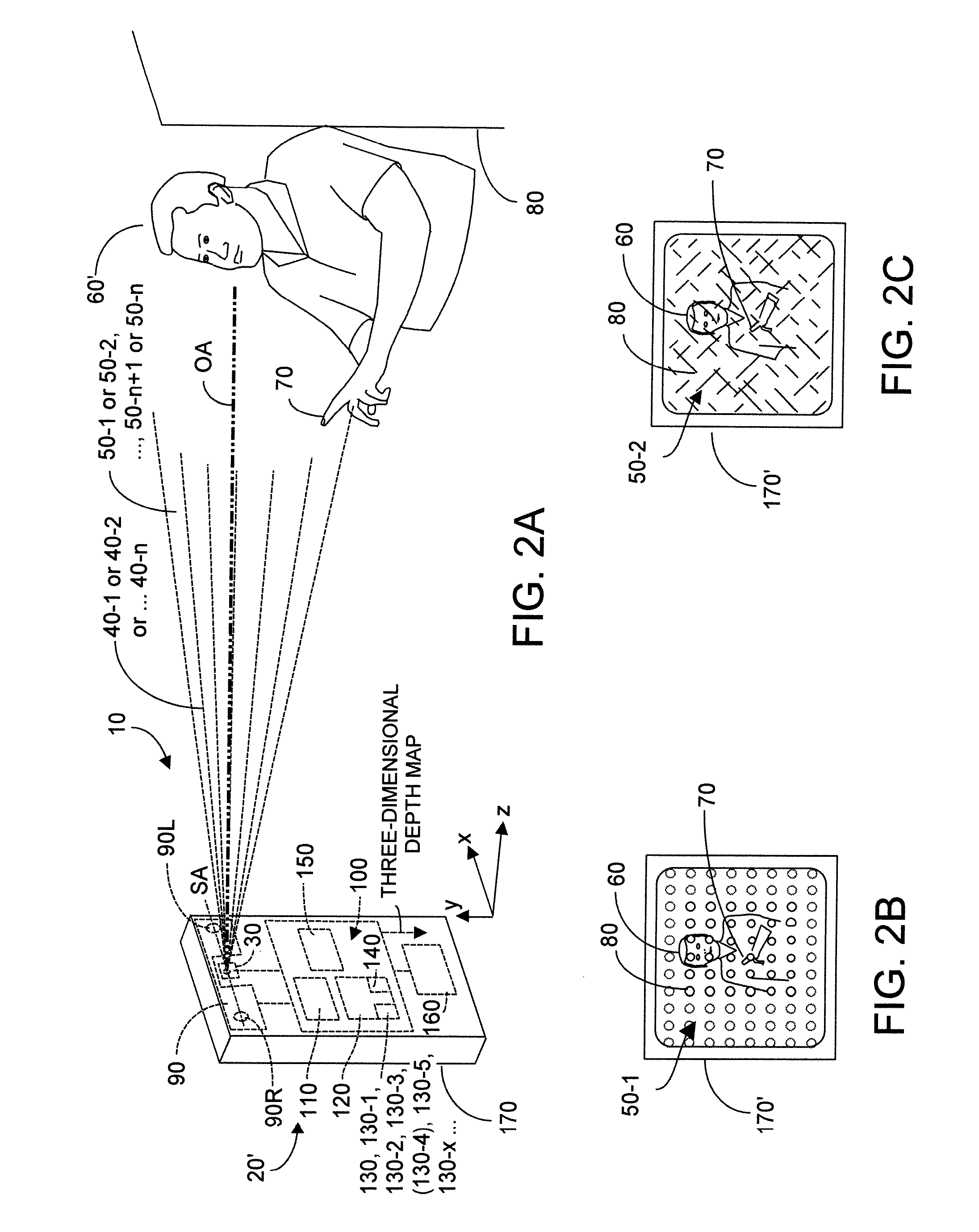Dynamically reconfigurable optical pattern generator module useable with a system to rapidly reconstruct three-dimensional data
a technology of optical pattern generator and dynamic reconstruction, which is applied in the field of dynamic reconstruction of optical pattern generator module with a system, can solve the problems of low power consumption of imaging systems, unsuitable for battery-operated portable use, and the inability to compute real-time stereo matching data, etc., and achieves robust and efficient detection, augment parallax information, and low power consumption
- Summary
- Abstract
- Description
- Claims
- Application Information
AI Technical Summary
Benefits of technology
Problems solved by technology
Method used
Image
Examples
Embodiment Construction
[0028]FIG. 1A depicts a system 10, which according to embodiments of the present invention preferably is handholdable by a user 15 (drawn in phantom to avoid cluttering the figure) and includes a portable preferably battery powered device 20 that houses a pattern projection system 30 that includes a light source and a spatially reconfigurable pattern generator (SRPG). Pattern projection system 30 projects an optical field 40 including at least one pattern e.g., 50-1 or 50-2 or 50-3 . . . 50-n onto a scene shown here as including a first target object 60 (a stuffed teddy bear toy) having a rotational axis denoted RA, and background imagery 80, here a planar wall. An optical axis OA is defined by system 30. Also housed within device 20 is an optical acquisition system 90, shown here as including first and second two-dimensional cameras 90L and 90R, preferably disposed on a common x-axis with output optical energy emitted from projection system 30. Cameras 90L and 90R may have RGB colo...
PUM
 Login to View More
Login to View More Abstract
Description
Claims
Application Information
 Login to View More
Login to View More - Generate Ideas
- Intellectual Property
- Life Sciences
- Materials
- Tech Scout
- Unparalleled Data Quality
- Higher Quality Content
- 60% Fewer Hallucinations
Browse by: Latest US Patents, China's latest patents, Technical Efficacy Thesaurus, Application Domain, Technology Topic, Popular Technical Reports.
© 2025 PatSnap. All rights reserved.Legal|Privacy policy|Modern Slavery Act Transparency Statement|Sitemap|About US| Contact US: help@patsnap.com



